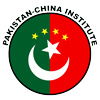Pakistan-China Institute addresses think tank forum on silk road economic belt
Source : Pakistan-China Institute Date : 22-08-2015 By : Staff Report
 |
Ms. Aiza Azam, Director Projects at the Pakistan-China Institute (PCI), participated in and addressed the Think Tank Forum on the Silk Road Economic Belt, held in Lanzhou city on July 7, 2015. A part of the 21st Lanzhou Investment and Trade Fair, the theme of the Forum was ‘Seizing the Opportunities and Jointly Building the Belt and Road’. The People’s Government of Gansu Province and the China Center for International Economic Exchange (CCIEE) had hosted the forum.
A number of high profile panelists had been invited to deliver talks on their respective topics, including Secretary of the Academic Committee, National Development and Reform Commission; Director of Financial Research Center, China Development Bank; President of China Tourism Association and Member of the Standing Committee of the 12th CPPCC National Committee; President of China Tourism Academy; and Vice President of Beijing Zhongkun Investment Group. The Mayor of the Municipal Government of Lanzhou, Mr. Yuan Zhanting, Vice Governor of People’s Government of Gansu Province, Mr. Li Rongcan, Vice Chairman and Secretary General of International Economic Exchanges, Mr. Zhang Dawei, and Chief Economist at the CCIEE, Ms. Chen Wenling, also addressed the Forum.
Ms. Azam, who was the only Pakistani panelist at the Forum, addressed the panel on Challenges and Opportunities in E-commerce along the Belt and Road. Her talk centered on the China-Pakistan Economic Corridor and the concerns associated with it. Referring to the Belt and Road as a ‘cooperative framework’ and ‘China’s grand strategic vision of regional integration’, she spoke of the Belt and Road’s potential to ‘usher in the revival of centuries old networks of historical linkages, bringing new impetus to cultural connectivity and exchanges along the route’. The Silk Road Economic Belt and the Maritime Silk Route, she said, ‘have the potential to change the landscape of connectivity, socio-economic development, as well as peace and security within the Eurasian region.’ Elaborating on the core element of this vision, she explained that it aimed at linking the development of the lesser developed regions to that of the more developed states that lie along the Belt and Road, underscoring the desire of the Chinese leadership to ensure benefit to its cooperation partners, ‘linking their progress and development to the progress and development of China’.
With reference to E-commerce in Pakistan, she highlighted lack of infrastructure, including IT infrastructure, as the major challenge which needed to be addressed, specifically when discussing the CPEC. With many areas along the route lacking in the right facilities, she explained, and internet penetration at 20% - 25% across the country, interested parties would need to invest not only in the right infrastructure (involving well maintained connecting routes, storage areas for product in proximity, online connectivity, etc.) but also in training local personnel.
However, she noted, while the challenges were significant, much would be gained from addressing them; in addition to generating employment opportunities for local communities and catalyzing socio-economic development, it would bring these communities into mainstream commercial activity, affording business access to a significantly enlarged and further flung customer base while also allowing business from outside the region to access a newer consumer base within it. She pointed out that with E-commerce standing at a much lower level than, for instance, China, in terms of being an ingrained practice, there was a tremendous gap that could be filled.
In concluding, she stressed two major aspects that needed to be considered. Firstly, the need to engage local communities directly in the implementation of this part of the Belt and Road and making them stakeholders in its progress, which would directly tie into the success of this initiative; this would in turn generate a secure and stable environment, geared towards sustained development and creating conditions conducive to peace and security. Secondly, she pointed out that for many businesses in China and the surrounding countries, finding a reliable local partner would be key for taking the first step towards engaging within this area, an entity which can facilitate connections and provide fundamental guidelines as to local laws and regulations, procedures, navigating the political landscape, etc. In this regard, she further explained the role of the Pakistan-China Institute as the best positioned entity for such a purpose, in view of its consultancy cell which provides such services.
